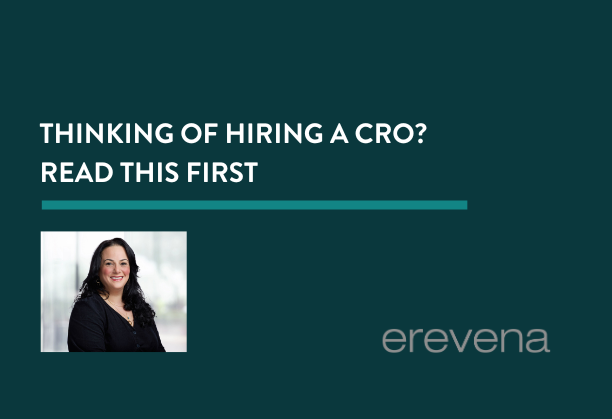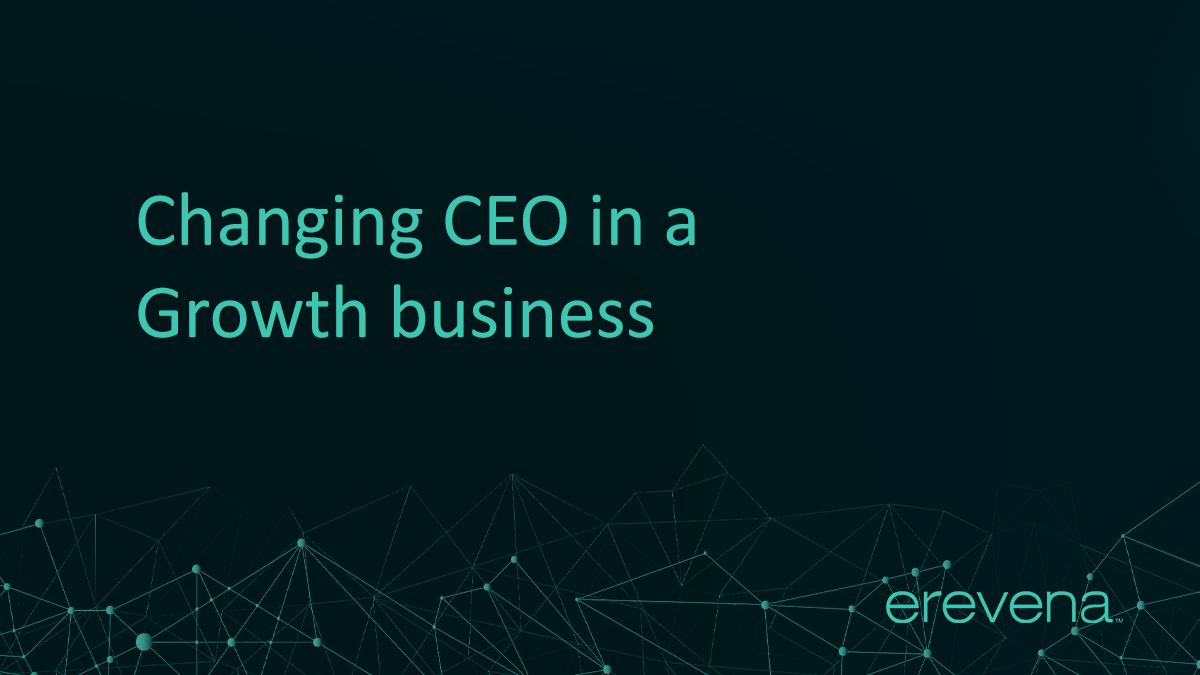A common strand to our work is hiring GTM leaders for B2B FinTech companies. In many cases, these companies are providing solutions to financial institutions, but some are software companies that want to build and scale with modern SaaS principles in mind. This can create a challenge to these searches; historically technology sales into financial institutions has been more relationship driven, requiring deep domain expertise and a knowledge of the relevant regulatory contexts. Typical SaaS companies by contrast, are defined by repeatable processes, scalability, and sophisticated pipeline building that leverages tools and automation as much as people. The prevalence of Customer Success and the importance of retention also plays a critical role in SaaS, where delivering long term value is achieved by rigorous assessment of who the right customers are, and ensuring that the product genuinely meets their needs.
This dichotomy demonstrates two distinct ways of thinking about business building and revenue growth, and it is understandable that they both developed. The introduction of cloud technology and the explosion of SaaS products that served most sectors horizontally necessitated repeatable frameworks for leadership that could optimize these company’s growth and ensure best practice. By the same token, financial markets naturally have more regulatory concerns and require products that solve very specific use cases. Here it cannot only be about the process of selling, because to sell the value you have to more intimately understand the pain points of your buyer.
In recent years, there has been considerable innovation in FinTech, with new technologies providing solutions right across the ecosystem. There are now many successful VCs that focus specifically on FinTech companies, and there are also major horizontal firms like Accel, Insight, and GV that have made meaningful investments in this area. Because of this, there is increasing demand for leaders at the intersection of the Financial Services domain and SaaS capability. Here we offer practical advice based on our experience of how to navigate this kind of search.
Know the traits of a quality SaaS GTM leader
It is helpful to understand what SaaS leaders will bring to your business so that you appreciate considering a candidate outside of the FS domain and understand their strengths. It is also important to understand which leaders in your domain can actually build in this way. It is potentially easy to rate a candidate highly because you know a lot of the same people, and because they can talk of specific relationships with your target customers. However if they don’t also balance this with repeatable principles in sales leadership, they may not be best suited. You want to be able to identify the best leaders with your domain experience and focus your efforts there, as opposed to considering a wide range of people who may look interesting initially, but don’t bring the substance to score highly on the aspects that are important.
Some of the traits and capabilities to qualify for would be:
- Market segmentation and ICP – can a GTM leader talk in an analytical sense about how they have segmented their markets, how they have identified their ideal customers, and how they have built a plan to acquire their business and serve them well? The level of structure in an answer to a question on this subject as well as the quality of the analysis itself will be key indicators of the candidate’s strength in this area.
- Sales management, process and methodology – Can the leader articulate how they run their teams, how they ensure performance, how they run deals and assess pipeline, and how they coach to win? Do they follow methodology such as MEDDIC or other applicable frameworks?
- Hiring A players – do they have a repeatable framework to demonstrate how they attract, retain and develop A players? How do they identify the top potential performers in an interview process? How do they ensure their output?
- Revenue Operations – the leader may have worked with a strong Revenue Operations Director, and will appreciate the importance of the numbers representing the output of the function, and the predictability that this function ensures. They should have a good grasp on their metrics and be able to speak to how they ensure they continue to be best in class.
- Collaboration and cross functional perspective – Better reporting and data output leads to better planning which will benefit the entire business. A great SaaS leader will often consider the perspective of Customer Success, and consider long term value and retention as important as closing the initial deal. They should also be able to speak well on how they work with the Product organization on representing customer feedback, and ensuring the whole business is aligned on building the right solutions for the right customers.
Which domain experience is relevant?
Alongside understanding what makes a SaaS leader highly effective, we also want to dive deeper into the idea of domain expertise. These searches are never binary choices between SaaS experience or domain expertise. Rather there is more complexity, and it is possible to analyze businesses in greater detail to more effectively target the right candidates. Domain expertise is a varied concept, and certain domain knowledge is much more relevant to certain companies depending on the nature of their product and their customer profile. For instance:
- Front office vs back office – Back office customers will be more sophisticated and experienced buyers of technology therefore they will be less likely to purchase software on the basis of relationship alone. There is an expectation of a higher level of technical detail around aspects such as security, permissions, integrations, and controls. Front office products by comparison are more commercial in nature and will require domain expertise around how that product will drive value for the kind of user. This is a similar to ICP considerations in SaaS more broadly, with leaders typically being more comfortable in organizations that sell either to a line of business function, or an IT function. It is not impossible for people to switch between the two modes, but it is inherently more risky to trust a candidate who hasn’t proven themselves with the target audience.
- Solution vs Platform – companies often start life as solutions, or are perceived by the market as such initially. Often the desire is to move towards being positioned as a platform. This requires a different sales process, with the capability to get buy in from a wider range of high level stakeholders in your target customer, along with an acceptance of longer sales cycles, and an increased commitment to building a brand and a developer community.
- Pricing – Volume based pricing is distinct from high up-front payments, which is distinct again from a land and expand motion where you may price lower to start and invest heavily in Customer Success. For instance, many FinTech infrastructure companies are targeting high ACV deals with enterprise customers, but with volume based pricing. This tends to require more flexible engagement, and a deeper understanding of what customers will or can build, in order to price a contract more effectively.
- Customer base – Are you targeting the tier 1 banks exclusively? Will you serve the regionals and credit unions instead, or in addition? Does your product also serve adjacent areas like retail and eCommerce? Are you targeting FinTechs themselves?
Each of these aspects help to better quantify what ‘domain’ will mean to you. This will allow you to more effectively prioritize candidates within financial services, but importantly also enable you to target very specific people within the SaaS ecosystem that will likely be able to adapt well to your business if you need. The more closely you can draw similarities with a candidate’s prior business to yours on the aspects that matter, the more effective the search process and the higher the chance of the candidate being successful.
It is not domain vs SaaS argument, rather that to find candidates that excel at the intersection of both, requires a deeper understanding of the domain.
Ensure alignment across your hiring panel and board
Alignment is probably the most important element in successfully concluding any executive search. Because of the dichotomy we are discussing here between SaaS and FS, the need for alignment is particularly pronounced. It may be that your executive team is made up of people with different experiences – some that will be deeper in financial services and others that may bring functional skills but are adapting to the domain. It may also be that your board is also made up of people with different perspectives. Many B2B FinTech company boards are made up of banks themselves, while others have more horizontal venture investors that are interested in their typical outlier outcomes. And often there is a mix.
All of these perspectives will be reasonable, it is just vitally important that they are discussed upfront and a direction for the search on what is most important is agreed upon. Sometimes, looking deeper in the domain may win out versus looking more in the SaaS market or vice versa, but without an agreed direction the search will end up surfacing compromise candidates that represent a middle ground but don’t really excite anybody. The goal should be to reach a point where most people on the team are genuinely excited to welcome their colleague, and that comes from having the harder conversations early on. Given that we believe there is a method to find people at the intersection of the SaaS principles and the domain, this point is less around the candidate skillset itself. It is more about ensuring that all sides of a panel and a board understand what is being searched for, and why the right candidate will stand out.
Compensation
Interestingly we have seen cash compensation is typically higher within B2B FinTech companies, although projected outcomes on equity may be lower, as a lot of candidates will have been working for companies that served a narrower market and which delivered more modest exit values compared to many horizontal SaaS companies. There is likely to be some convergence here, as the tier 1 VCs that target outsized outcomes invest more heavily into this market. This still might mean however that candidates will need some delicate expectation setting – some will be used to higher cash and will not be comfortable weighting the equity as highly in their compensation mix. This may be a particular issue if there are companies that have raised rounds in 2021, as candidates can be skeptical of the equity value even if strike prices have been reset. Sometimes this could be an indicator that your candidate may not have the right risk profile for you, but we believe both company and candidate understanding the historical context here can lead to better outcomes. It is again about having these harder conversations as soon as possible and, in the case of compensation, being flexible. Not necessarily with amounts, but in the balance of cash vs bonuses / commission vs equity / long term incentive.
Overall
We hope this article has given some insight into the dichotomy we believe many B2B FinTech companies are facing. Both sides of that dichotomy need to be satisfied, and it is possible to do so.
Being aware of the different traits and tradeoffs upfront will lead to much more efficient recruitment processes.
Our team in New York work closely with our London office and we take a collaborative view on this space in order to have the widest possible coverage and knowledge of the market. There are many companies that have the potential and the ambition to deliver outsized outcomes to investors and serve their customers with innovative and valuable solutions. We value the opportunity to play our part in helping these companies achieve the success they deserve.
Share this article:












